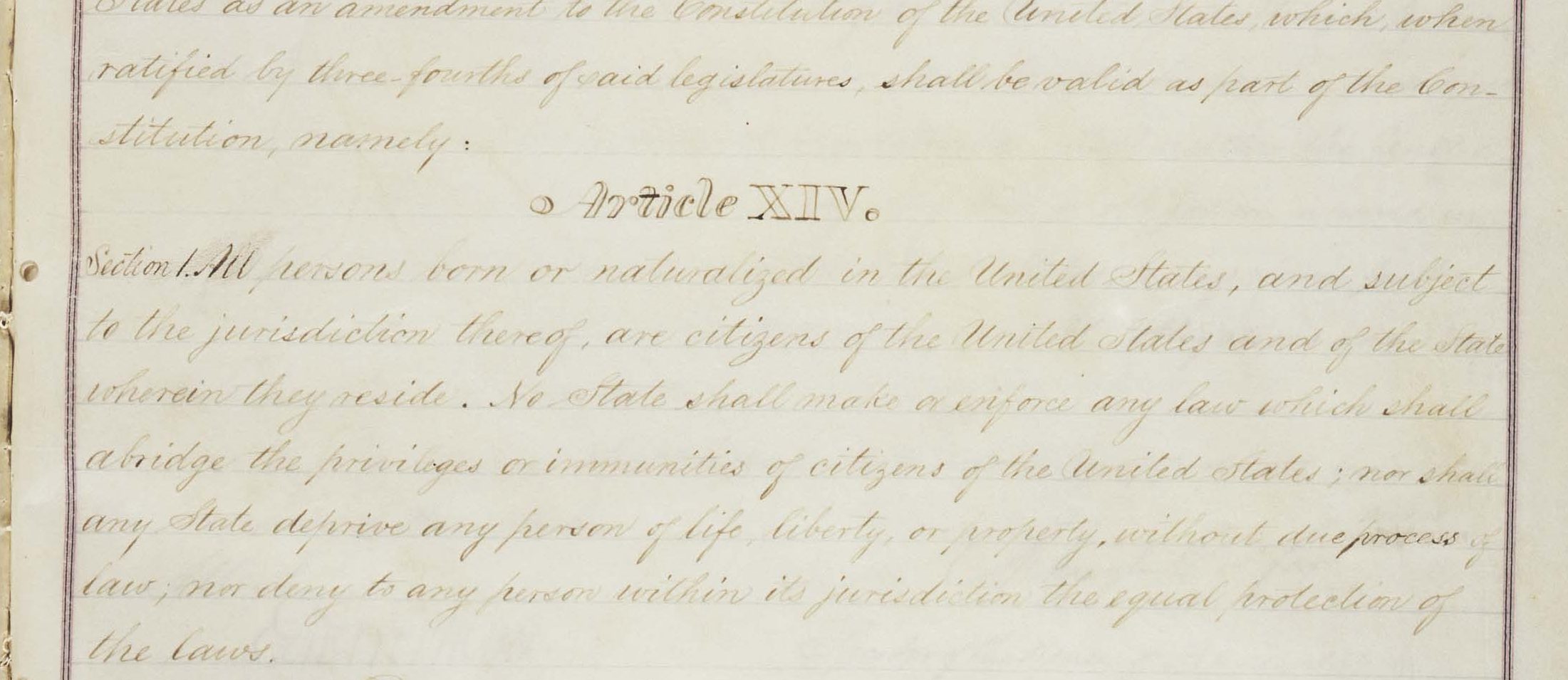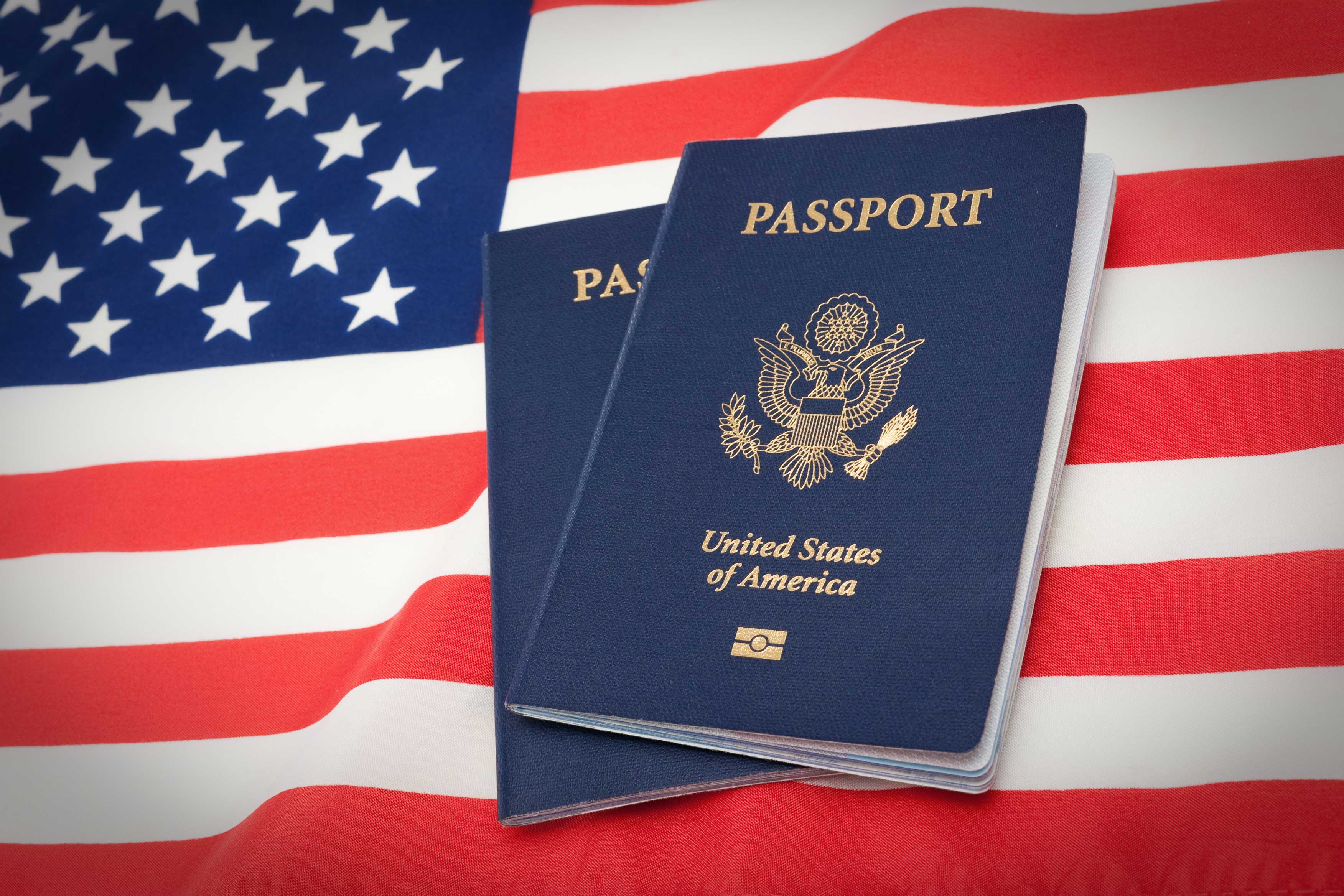Birthright citizenship should be an uncontroversial right.
Citizenship, Immigration, and the Nation-State

A reply to the hysterical arguments made by progressive liberals and others who should know better.
Hysteria is gripping the nation, driven by the caravan of migrants traveling towards our southern border, the Trump administration’s recent attempts to curtail illegal immigration by the adoption of a zero-tolerance policy for illegal border crossers, and by the bare suggestion that, in this year of the 150th anniversary of the adoption of the 14th Amendment, the policy of granting automatic birthright citizenship to the children of illegal aliens born in the United States should be ended. The frenzy that has been generated by the progressive-liberal press, Hollywood radicals, progressive politicians (both Democrat and Republican), the minions of the deep state, and academics and law professors has been unprecedented.
The new-found concern for the children of illegal border crossers is calculated to force open borders on the nation under the thinly veiled guise of compassion for children.
The outrage over the separation of parents and children at the border is fabricated and insincere because the policy of separating children and parents is nothing new. It had been a practice of both the Obama and Bush administrations, yet attracted nowhere near the current level of media attention. Many of the children who reach the border are unaccompanied, having been sent by parents who hire smugglers to transport them to the border. The rationale for separating parents and children in these instances begins with parents who willfully expose their children to dangers in the hopes that they might benefit later if they are successful in claiming asylum. Many adults arrive with children who are not their own, passing them off as their own children to receive preference. Some MS-13 gang members accompany children, masquerading as parents.
The compassion directed towards illegal border crossers is often understandable, but confused. Compassion is used as a lever for advocacy of open borders and the elimination of citizenship. Instead of citizenship, many of those who are protesting the treatment of children at the border support “universal personhood”—the idea that universal persons rather than citizens should inhabit a borderless, homogeneous world state.
Fueling the movement toward denationalization, progressive constitutional scholars now advance the theory that that there are no enumerated powers in Constitution to protect borders. These scholars—who would not ordinarily seek to limit the power of government by invoking enumerated powers—have suddenly hit upon an argument that, if taken seriously, would mean that the United States is not a sovereign nation. Protection and integrity of borders is inherent in the idea of sovereignty. Yet the newfound argument of these constitutional scholars—who, of all people, should be immune from hysteria—seems to have been the justification for the Democratic party’s emerging call to abolish Immigration and Customs Enforcement.
A similar motive drives the similarly hysterical attacks on those who have the audacity to suggest a compelling constitutional argument exists that the children born in the United States to the parents of illegal aliens are not automatically citizens because they are not “subject to the jurisdiction” of the United States. “That issue is settled and cannot be reopened” is the oft-repeated mantra. “The Fourteenth Amendment adopted the English common law of birthright citizenship,” we are assured, “and that is final.” All reputable scholars and the Supreme Court have accepted that proposition which means that everyone born within the limits of the United States is a citizen, regardless of the status of the parents. Anyone who challenges this orthodoxy is a racist, a xenophobe or one or more of the many “phobias” condemned by political correctness.
Wrong. As I have argued, the 14th Amendment did not adopt the common law definition of birthright citizenship. While the majority in the 1898 decision in U.S. v. Wong Kim Ark did hold that the 14th Amendment adopted the common law of citizenship, it was clearly mistaken, as the dissent amply demonstrated. The case did not involve a child of illegal aliens, but tested the citizenship of a child of legal residents who by law were ineligible for American citizenship and acknowledged their allegiance to the Emperor of China. No case of the Supreme Court, except in dicta, has ever held that the children of illegal aliens are entitled to automatic birthright citizenship.
No nation is sovereign if it cannot control its borders and have full authority to determine who can become citizens. More than a century ago, the Supreme Court announced what was considered the commonsense understanding of the matter when it remarked that “it is an accepted maxim of international sovereignty, and essential to self-preservation, to forbid the entrance of foreigners within its dominions, or to admit them only in such cases and upon such conditions as it may see fit to prescribe.”[1] Today’s progressive liberals, however, no longer consider self-preservation a rational goal. To them, in fact, it is now an act of injustice. Self-preservation and safety must give way to openness and diversity, even if it exposes the nation to danger and undermines its sovereignty. Americans owe these risks and sacrifices to foreigners and strangers who want the benefit of what Americans have built. Diversity is in the service of universalism and the borderless world; sovereignty serves citizenship and the exclusive privileges and rights that attach to it. The nation-state is the stumbling block standing in the way of progress toward the uniform global regime that is the ultimate goal of progressives.
If illegal borders crossers can confer the boon of American citizenship upon children born to them while they are illegally in the country, they can create citizens without the consent of the nation in violation of its sovereignty. America became a “separate and equal” nation with exclusive citizenship and rights and privileges that attach to that citizenship. The “one people” who formed America by consent, can of course, admit new citizens by naturalization according to terms and conditions it creates in its immigration laws. But new citizens can be added only with the consent of those who already constitute the body politic. Illegal border crossers who seek to confer citizenship on their children born in the United States do so without the permission of the United States.
Neither the parents nor the children who illegally cross the border are “subject to the jurisdiction” of the United States, even though they are subject to its law and court proceedings. Similarly, those who enter the United States on legal visas with the express purposes of giving birth to children who will then be American citizens are not subject to the jurisdiction of the United States because they are sojourners, not subject to the complete jurisdiction of the United States because they owe allegiance to another country.
Citizenship without consent erases borders; it is a step toward a borderless world. But this will be a world where citizenship is superfluous; “universal persons” will inevitably be subjects (or clients) of the administrative state that will govern the world order. The world homogeneous state, however, will dispense with the inconvenience of having to rest its powers on the consent of the governed, because it will not be a constitutional government but an administrative tyranny. In this future world state there will be no citizens, only subjects. Feudalism will have returned, but now on a global scale. Many on the Right who support supposedly “compassionate” immigration policy do not realize they are contributing to the realization of this future state.
Constitutional government, on the other hand, can exist only in independent, sovereign states where citizens share a common good that separates and distinguishes them from the rest of the world. Rights and privileges are unique to citizenship. They will not be a part of the homogenous world state—that borderless world where subjects of the administrative state will be called “universal persons” who are clients, but not citizens.
Immigration policies should serve the interests of the nation-state; they should not be acts of charity to the world. The integrity of the nation-state is intimately tied to the integrity of constitutional government and the fulfillment of its purposes, the safety and happiness of the people, which includes the protection of rights and liberties as an integral part of the people’s safety and happiness. Those invited to become members of the body politic should have something to offer to the common good: not only the capacity to adopt the habits and manners of republican citizens, but the wherewithal to be independent citizens who will not become prey to the minion of the administrative state.
Full acceptance of American principles as specified in the Declaration and the Constitution are a minimum requirement for becoming a member of the American polity. A useful occupation that contributes to the American economy should be another minimum requirement. Unskilled or low skilled labor only creates an underclass that shuts out Americans from entry level jobs that provide the acquisition of necessary work-discipline and skills for economic advancement. The emphasis should be on highly skilled workers who can make an immediate contribution and who are needed to fill gaps created by a dynamic economy.
Immigration driven by compassion is misplaced—compassion is sometimes necessary in extraordinary situations, but as a performative litmus test for policy, it only exhibits weakness to the world. No one has a right to emigrate to the United States. The world is rapidly lapsing into chaos and tyranny, where only a few stable constitutional governments hold out prospects for survival. These governments cannot be the last refuge for those fleeing violence, terror, poverty and the host of other ills that afflict the world. If they insist on doing so—if they insist on erasing borders in the pursuit of that goal, they too will dissolve into dysfunction. The nation-state is the last refuge of freedom and constitutional government. It requires not only wise choices, but difficult ones.
[1] Nishimura Ekiu v. U.S., 142 U.S. 651, 659 (1892) (Gray, J.).
The American Mind presents a range of perspectives. Views are writers’ own and do not necessarily represent those of The Claremont Institute.
The American Mind is a publication of the Claremont Institute, a non-profit 501(c)(3) organization, dedicated to restoring the principles of the American Founding to their rightful, preeminent authority in our national life. Interested in supporting our work? Gifts to the Claremont Institute are tax-deductible.
The 14th Amendment settled the question of birthright citizenship.
The political consequences of cultural freefall.
The Declaration and the Fourteenth Amendment grasped citizenship through social compact.
A reply to Professor John Yoo's and Judge James Ho's case for the original understanding of the 14th Amendment.
It's stronger than you think.






